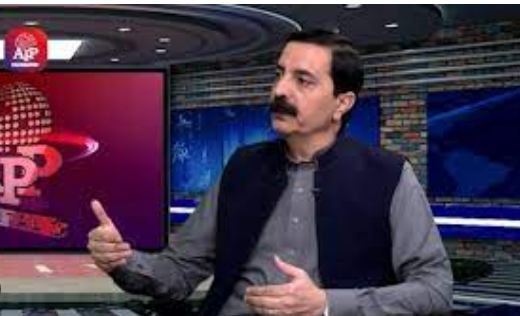ISLAMABAD, JUN 13 (DNA) — Managing Director, Pakistan Bait-ul-Mal (PBM), Malik Amir Fida Paracha Tuesday said digitalization of PBM projects would enhance its productivity, cost-effectiveness and ensure transparency in its working.
“The process of digitalization of all projects of PBM is underway which would help transform the entire working of the institution as well as attract national and international donors to extend their contributions”, the MD said in an interview with a state run news agency.
The MD PBM said that the institution was running a number of welfare projects, including Shelter Homes, Sweet Homes, Pakistan Thalassemia Center, Individual Financial Assistance, Women Empowerment Centers, PBM Schools, Persons with Disabilities project, Old Homes and provision of medical assistance for treatment of various diseases.
During the FY 2021-22, the PBM has provided medical assistance to 13719 patients, educational scholarships to 5769 students, education stipends for 18375 children, benefited 5068 special persons and 10,075,716 persons through shelter homes.
The first priority of Amir Paracha, since joining this authority as MD PBM, was to attract domestic and foreign donors for which the digitalization of all the projects was the pre-requisite. “The work on digitalization of all the projects was started on war footing which is instrumental to bring transparency and boost the confidence of donors”, he added.
The MD said that one of the main objectives of the establishment of PBM was to cater to the needs of special people and provide them with maximum facilities. “PBM is providing assistive devices, health care facilities and technical skills to these people aiming to bring them into the mainstream”, he added.
He highlighted that PBM was also providing cochlear implant facility for hearing and speech impaired children (up to five years of age) which is an expensive treatment and cost about Rs. 19, 00,000. “This implant can be a life changer for these children to move forward as productive citizens”, he added.
He said that cochlear implant had also been included in the budget of PBM through the efforts of Federal Minister for Poverty Alleviation and Social Safety, Shazia Marri and other relevant officials of the ministries.
Responding to a question, Amir Paracha said that his one of the top priorities was also to resolve all the pending cases of cochlear implants worth around Rs 2.5 billion.
The MD PBM said that presently, 50 Sweet Homes operating across the country were catering the needs of orphans in terms of their accommodation, education and well-being through adopting a modern welfare approach. “Earlier, the PBM Sweet Homes (Orphanages) were catering to the educational needs of these orphan children till Matric level but now the facility has been extended till graduation level”, he said.
About the Women Empowerment Centers (WECs), the MD PBM said that around WECs were operating in all the districts across the country to provide free vocational training to widows, orphans and poor girls in modern trades like Dress Designing, Embroidery, Basic and Advance Computer Courses, Fabric Painting etc.
To address the issue of increasing child labour in the country, the MD PBM said that 159 Schools for Rehabilitation of Child Labours (SRCLs) across the country were working to withdraw children from their workplaces to bring them into the mainstream education through non-formal means of education.
The children passing out from SRCLs are admitted to the government schools for education up to Grade-VIII through a PBM grant of Rs. 4,100, he said. In response to a question, The MD PBM said that there was no increase in the budget of the institution during the last three years instead there was cut of Rs. 500 million in the current year’s budget.
However, increase of Rs. one billion has been proposed in the budget for FY 2023-24 which is still not sufficient, he said while expressing his commitment to continue struggle for more increase. About the scholarship program, Amir Paracha said that the universities have been asked to ensure the implementation of additional quota for rural, backward areas and Balochistan.
The PBM has also decided to expand the scope of Youth Houses to other cities phase wise, following the successful establishment of these in Islamabad and Gilgit-Baltistan, he added. — DNA

















